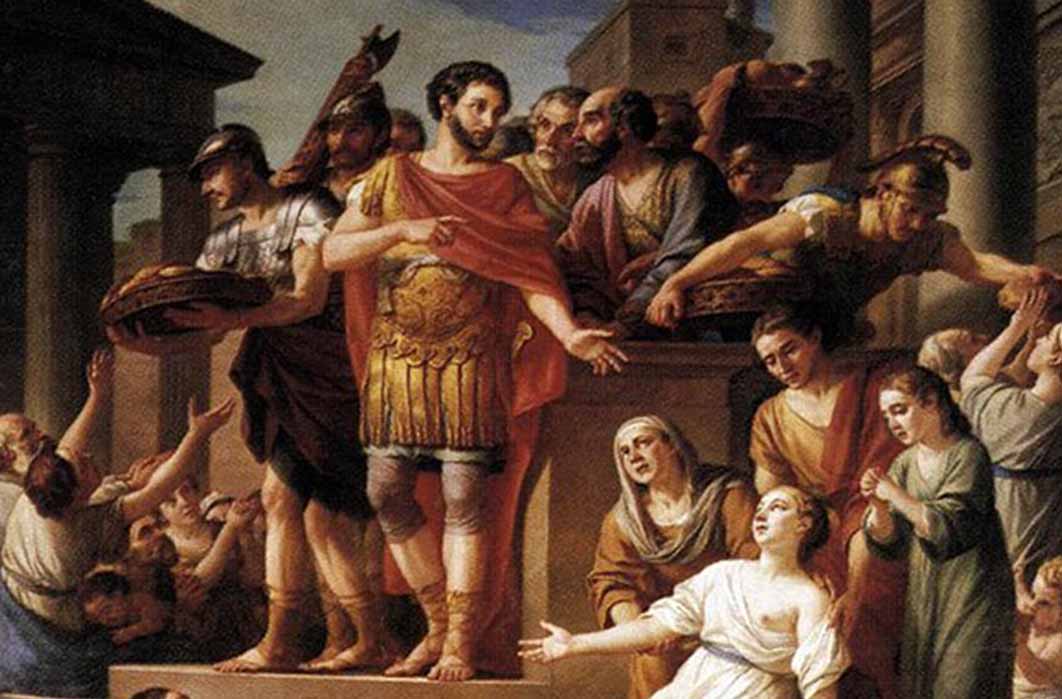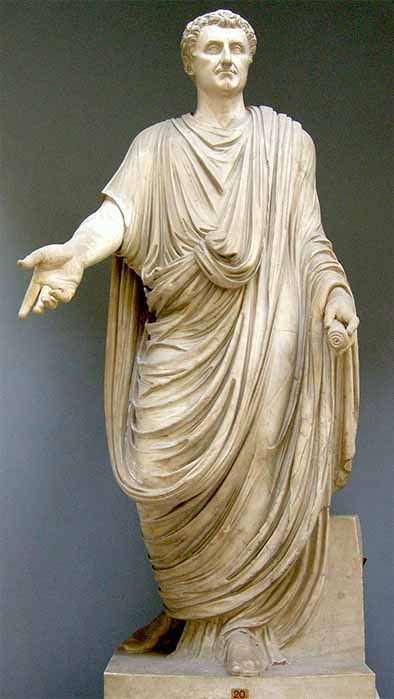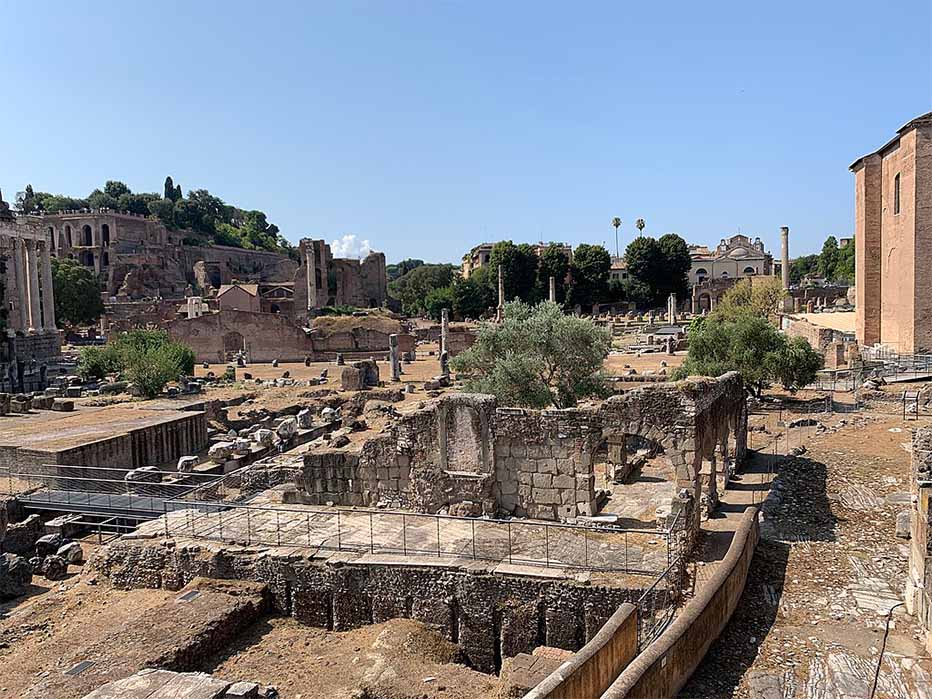
The Antonine Dynasty: The Good Roman Emperors
While much appreciated by the plebeians and especially by the army, Emperor Domitian was hated by the aristocracy and the Senate, which he himself despised. His absolutist attitude, his austere financial measures and his persecuting actions perpetrated even against those close to him who were provoked by his unhealthy anxiety concerning his personal security, made him powerful enemies. When the Praetorian Guard joined the ranks of his opponents, the inevitable happened. Under the tacit approval of the Praetorians and the Senate, the Emperor’s own servants, who feared for their own lives, murdered him in September 96 AD. Domitian was 45 years old.
The death of Domitian put an abrupt end to the Flavian Dynasty of emperors. He was remembered as a ruthless but efficient tyrant whose cultural, economic, and political programs nevertheless provided the groundwork for an impending prosperous period of the Roman Empire which was to be driven by the emperors of a new dynasty. The Antonine Dynasty was thus ushered in when the senate elected the elderly Marcus Cocceius Nerva as the new Emperor.

Marcus Cocceius Nerva. Chiaramonti Museum (I, Sailko/ CC BY-SA 3.0)
The Reputable Nerva (96–98)
As a member of a noble family from central Italy, Nerva’s kinfolk had been in the imperial entourage since the time of Emperor Tiberius. In 71, Nerva was the only unrelated collaborator of Emperor Vespasian, usually assisted only by his sons Titus and Domitian. He became consul jointly with Domitian in 90 and then went into exile when Domitian’s persecutions against the aristocracy intensified.
The founder of the Antonine Dynasty was a balanced, moderate, eloquent and very cultivated man. His liberal spirit reassured the aristocracy and the Senate, hard hit by Domitian, which wished to preserve the stable social climate bequeathed by the first Flavians. Nerva saw to a continuity in the administration and the finances. He also practised a policy of collaboration with the Senate. Considerable resources were invested in public works and the road network in Italy. Nerva completed many construction projects undertaken under Domitian, many of which were quite advanced. During Nerva’s reign, there was a markedly increased influence of the provincial aristocracy in State affairs through its ever-growing presence in the Senate. The leadership of the Empire was no longer reserved for the Italian elite.

Forum of Nerva in Rome, commenced by Domitian (Chabe01/ CC BY-SA 4.0)
Having never held a military position, Nerva had no enemies in the military. This fact had a second impact: He also had no allies within the army. Consequently, the army displayed a generally neutral attitude toward the new Emperor and in fact, part of the army still cherished the memory of Domitian, the first Emperor since Augustus to have increased their pay.
Nerva was no more unanimous among the Praetorians. A political crisis threatened the stability of the reign, and the eventual succession of the 67-year-old Emperor became a concern. Having no children, Nerva eased the agitation of the Praetorians by adopting Trajan, the governor of Upper Germania, in 97. Adopted by choice or under pressure, Trajan, who originated from Hispania (modern Spain) was designated as a successor. The choice of Nerva was wise, because by preferring to focus on merit rather than on a personal bond or on the origin of the candidate, it ensured the prosperity of the Empire. The plan was to place at the head of the Empire a competent man who was respected by the aristocracy, the military and the people. After having reigned only 16 months, Nerva died of natural causes in 98 even before Trajan arrived in Rome.




